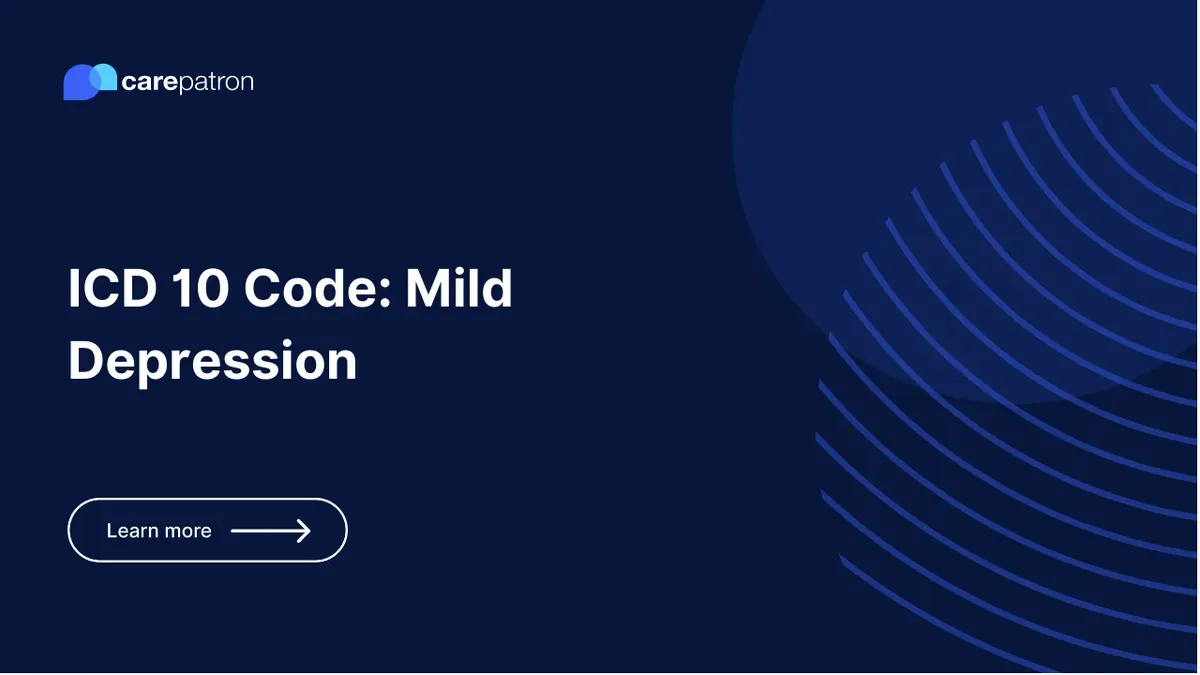
Mild Depression ICD-10-CM Codes | 2023
Discover the ICD-10-CM codes for mild depression, their descriptions, billability, and clinical details. Plus, explore common questions and synonyms.
Use Code
Commonly asked questions
Mild depression, indicated by codes such as F32.0 and F33.0, involves fewer or less severe symptoms than major depression.
Mild depression is diagnosed based on a patient's reported symptoms, duration, and the degree to which they interfere with daily life. It typically involves fewer or less intense symptoms than major depression.
If left untreated, mild depression can progress in severity over time, highlighting the importance of early diagnosis and treatment.
EHR and practice management software
Get started for free
*No credit card required
Free
$0/usd
Unlimited clients
Telehealth
1GB of storage
Client portal text
Automated billing and online payments
